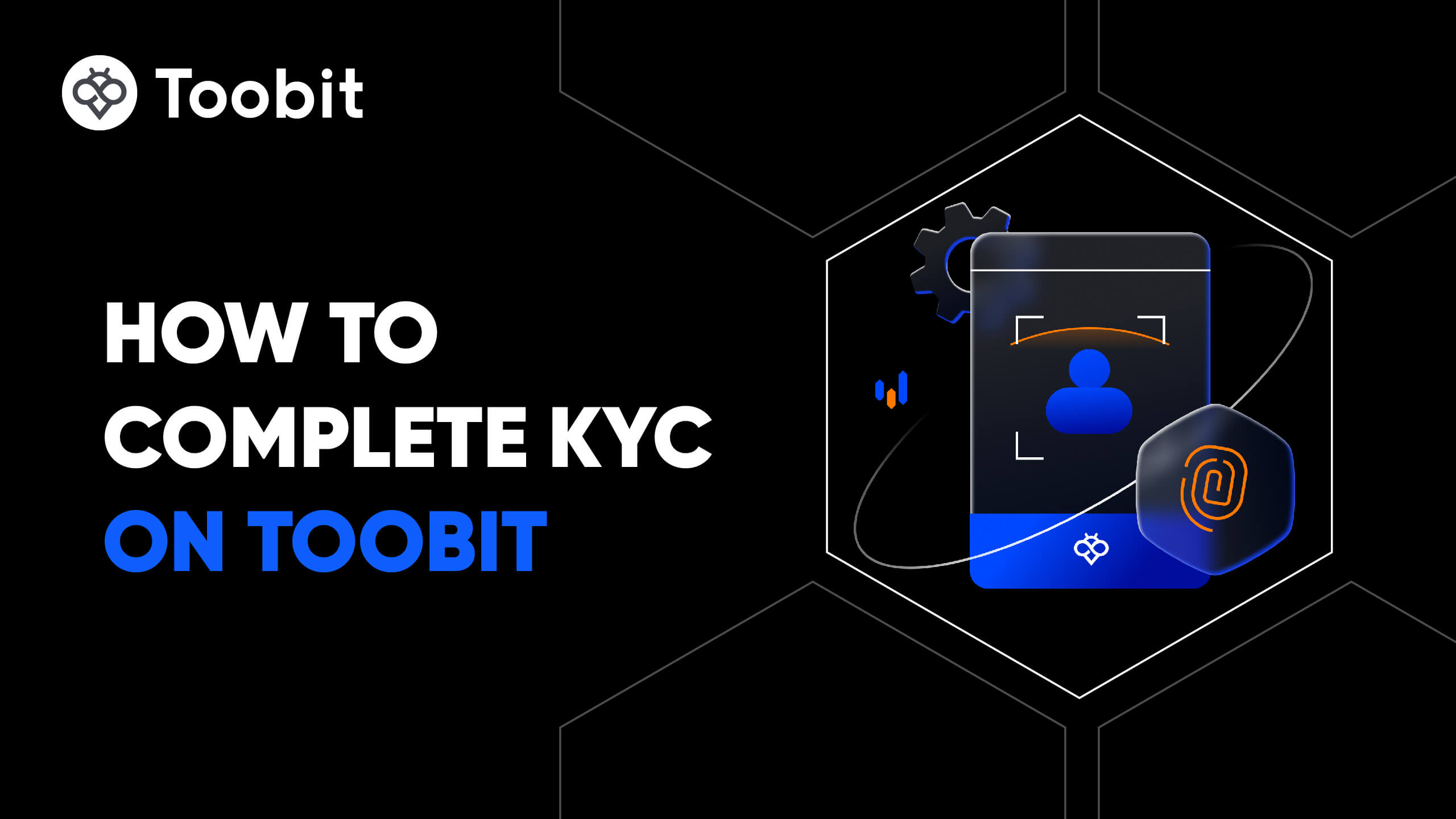Preço de Open Campus
EDUInformações do mercado de Open Campus
Preço ao vivo de Open Campus hoje em USD
Quanto vale 1 EDU em ?
Sobre Open Campus(EDU)
Histórico de preços de Open Campus
Por que o preço de Open Campus sempre oscila?
Quais fatores afetam o desempenho dos preços de Open Campus?
Preços globais de Open Campus
Como comprar Open Campus
Junte-se ao Toobit agora!
Cadastre-se na Toobit com seu e-mail/número de celular e país de residência e crie uma senha forte para proteger sua conta.
Verifique sua identidade
Complete a verificação de identidade enviando seus dados pessoais e um documento de identificação com foto válido.
Adicione um método de pagamento e compre Open Campus (EDU)
Adicione um cartão de crédito/débito ou conta bancária após verificar sua conta Toobit. Use várias opções de pagamento para comprar Open Campus na Toobit.
Negocie contratos futuros perpétuos de EDU
Após se cadastrar na Toobit e comprar USDT ou tokens EDU, você pode começar a fazer trade de Derivatives, incluindo futuros EDU e Margin trading para aumentar sua renda.
Participe do Copy Trading de EDU com Traders Líderes
Após se registrar na Toobit e comprar com sucesso USDT ou tokens EDU, você também pode começar o copy trading seguindo Traders Líderes.
Onde posso comprar Open Campus?
Compre cripto no app da Toobit
Cadastre-se em poucos minutos para comprar cripto via cartão de crédito ou transferência bancária.
Negocie na Toobit
Deposite suas criptomoedas na Toobit e aproveite alta liquidez e taxas de negociação baixas.
Seção de vídeo — verificação rápida, negociação rápida

Como concluir a identificação na Toobit e se proteger contra fraudes
- 1.Entre na sua conta Toobit.
- 2.Se você é novo na Toobit, assista ao nosso tutorial sobre como criar uma conta.
- 3.Clique no ícone de perfil no canto superior direito da barra de navegação e depois toque na página de Identificação.
FAQ Sobre EDU
O que é o Open Campus (EDU)?
O Open Campus está na vanguarda de uma mudança inovadora no setor educacional, utilizando a tecnologia blockchain para criar uma plataforma descentralizada que conecta perfeitamente alunos, educadores, criadores de conteúdo e instituições educacionais. Este ecossistema inovador vai além de simples conexões; ele promove uma comunidade dinâmica onde interações significativas enriquecem a experiência educacional para todos os envolvidos.O núcleo do Open Campus é a EDU Chain, uma infraestrutura descentralizada projetada para transformar a educação. Este projeto ambicioso é reforçado por parcerias estratégicas com entidades afins comprometidas em revolucionar a educação através da tecnologia Web3. O Open Campus oferece aplicações descentralizadas (dApps) que proporcionam experiências de aprendizagem personalizadas, bem como ferramentas adaptadas para desenvolvedores e instituições educacionais. Além disso, fornece a liquidez necessária para o crescimento contínuo do ecossistema, com o EDU USDT desempenhando um papel fundamental na facilitação dessas transações.O Protocolo Open Campus é uma iniciativa orientada pela comunidade que capacita os usuários colocando a criação e colaboração de conteúdo diretamente em suas mãos. Esta abordagem aborda desafios críticos no setor educacional atual, como a subvalorização dos educadores e a falta de controle dos pais sobre o conteúdo educacional dos filhos. Ao descentralizar a criação e distribuição de conteúdo, o Open Campus permite que os alunos acessem uma gama mais ampla de materiais de aprendizagem, enquanto oferece aos educadores novas oportunidades de gerar receita e obter reconhecimento.Central para este ecossistema está o token $EDU, um token fungível que impulsiona a colaboração, incentiva a criação de conteúdo de alta qualidade e apoia o crescimento a longo prazo do protocolo. O token $EDU é especificamente projetado para atender às necessidades de educadores e alunos, contribuindo para um ecossistema próspero e inclusivo que tem o potencial de remodelar a indústria educacional de $5 trilhões, devolvendo o controle tanto para educadores quanto para alunos.Em conclusão, o Open Campus é mais do que apenas uma plataforma; ele representa um movimento em direção a um sistema educacional mais equitativo, acessível e descentralizado, impulsionado pela tecnologia blockchain. Ao reinventar como o conteúdo educacional é criado, distribuído e acessado, o Open Campus está abrindo caminho para um futuro onde a educação é mais inclusiva, colaborativa e alinhada com as necessidades da comunidade global.Como comprar EDU
Para comprar EDU, você pode seguir estas etapas gerais:1. Escolha uma exchange de criptomoedas e Crie uma ContaComece selecionando uma plataforma de criptomoedas respeitável e confiável que suporte a negociação de EDU. Você também pode comprar EDU aqui na Toobit. Inscreva-se.2. Complete a Verificação (Não Obrigatório):Leia nosso guia Como Completar a Identificação na Toobit para mais informações.3. Deposite Fundos:Deposite fundos na sua conta Toobit. Isso pode ser feito via cartões de crédito/débito ou sua carteira de criptomoedas.4. Navegue até EDU:Uma vez que sua conta esteja financiada, navegue até a seção de Mercados da plataforma.5. Compre EDU:Localize EDU na lista de criptomoedas disponíveis.Faça um pedido de compra. Leia nosso guia Como Comprar Cripto na Toobit para mais informações.Como Vender EDU?
Você pode vender EDU por USDT aqui na Toobit. Leia nosso guia sobre Como Negociar à Vista na Toobit para mais informações.Qual é o preço do EDU agora?
Está à procura do preço do EDU? O preço ao vivo do EDU é atualizado em tempo real no Toobit.Como Retirar EDU no Toobit?
Você pode retirar EDU e outros tokens de criptomoeda em USDT aqui no Toobit. Leia nosso Guia de Como Retirar Cripto no Toobit para mais informações.Como será utilizado o Open Campus?
O Open Campus está prestes a revolucionar o cenário educacional ao aproveitar o poder da tecnologia blockchain para criar um sistema mais equitativo e acessível para todos os envolvidos no processo de aprendizagem. Esta plataforma descentralizada serve como uma ponte, conectando de forma fluida alunos, educadores, criadores de conteúdo e instituições educacionais. Ao promover um ambiente orientado pela comunidade, o Open Campus possibilita interações e trocas significativas que aprimoram a experiência educacional como um todo.A plataforma vai além de simplesmente facilitar conexões; ela visa mudar fundamentalmente como a educação é entregue e consumida. Ao integrar-se com diversas entidades que compartilham sua visão para o futuro da educação, o Open Campus está expandindo os limites do que é possível com as tecnologias Web3. Isso inclui o desenvolvimento e a implementação de aplicativos descentralizados (dApps) e ferramentas adaptadas às necessidades de alunos e desenvolvedores. Além disso, os provedores de liquidez na plataforma são recompensados através de taxas de transação e outros incentivos financeiros, garantindo um ecossistema robusto e sustentável.No cerne do Open Campus está o token $EDU, um motor chave de inovação e colaboração dentro do ecossistema. Este token fungível é essencial para fomentar a criação de conteúdo de alta qualidade e apoiar o crescimento da plataforma. Através do token $EDU, o Open Campus capacita educadores, oferecendo-lhes novas oportunidades de receita e o reconhecimento que merecem, abordando a questão persistente da subvalorização no setor educacional.Além disso, o Protocolo Open Campus foi projetado para devolver o controle a educadores e alunos. Ao descentralizar a criação e distribuição de conteúdo educacional, a plataforma garante que os estudantes tenham acesso a uma gama diversificada de materiais de aprendizagem. Esta abordagem democratiza a educação e desafia os modelos tradicionais que têm limitado o potencial da indústria.Quais foram os principais eventos para o Open Campus?
O Open Campus está causando impacto nos setores de blockchain e educação através de uma série de marcos significativos, sublinhando sua missão de transformar o cenário educacional. Ao descentralizar a educação, o Open Campus visa capacitar educadores e alunos, com desenvolvimentos significativos destacando a crescente utilidade e adoção do token $EDU.Um dos momentos mais importantes para o Open Campus foi o lançamento da plataforma EDU Chain. Esta iniciativa representa um passo fundamental para concretizar a visão do protocolo, permitindo a criação e distribuição de conteúdo educacional na blockchain. Ao aproveitar a tecnologia blockchain, a plataforma EDU Chain garante que os materiais educacionais sejam acessíveis, transparentes e imutáveis, melhorando tanto a qualidade quanto o alcance dos recursos.Outro evento chave foi a introdução dos NFTs Genesis do Open Campus na BNB Smart Chain em junho de 2023. Este movimento inovador mostrou a abordagem visionária do Open Campus para integrar tokens não fungíveis (NFTs) no setor educacional. Esses NFTs oferecem novas oportunidades para o engajamento e investimento da comunidade, simbolizando uma maneira inovadora de apoiar e reconhecer educadores e criadores de conteúdo. Isso se alinha perfeitamente com a missão do Open Campus de valorizar e recompensar contribuições dentro do ecossistema educacional.Além desses lançamentos, o Open Campus tem estado ativamente envolvido em vendas de tokens, airdrops e parcerias estratégicas. Essas iniciativas aumentaram significativamente a visibilidade e o valor do token $EDU, atraindo mais participantes para o ecossistema. As vendas de tokens e airdrops têm sido especialmente eficazes na distribuição do token $EDU para um público mais amplo, aumentando a liquidez e fomentando um forte senso de comunidade entre os stakeholders.As parcerias estratégicas formadas pelo Open Campus enfatizam ainda mais seu compromisso com a colaboração e inovação. Ao alinhar-se com os principais atores nos setores de blockchain e educação, o Open Campus expandiu sua influência, alcançando uma rede mais ampla de educadores, alunos e criadores de conteúdo. Essas colaborações são cruciais para impulsionar a adoção da tecnologia blockchain na educação, promovendo a troca de ideias e escalando as soluções do protocolo para enfrentar os desafios em evolução da indústria educacional.Quem são os fundadores do Open Campus (EDU)?
O Protocolo Open Campus é uma plataforma descentralizada inovadora projetada para remodelar o cenário educacional. Liderada por uma equipe diversificada e visionária de fundadores—Alex G., Jack Chorowsky, Yogev Shelly, Jay Varkey, Yat Siu e Oren Elbaz—esta iniciativa reúne uma riqueza de expertise e um compromisso compartilhado para enfrentar os desafios críticos no setor educacional.Os fundadores do Open Campus estão unidos por uma missão de revolucionar a indústria educacional de $5 trilhões, capacitando os principais interessados: educadores e alunos. Através de sua estrutura descentralizada, o Protocolo Open Campus busca criar um sistema educacional mais equitativo e inclusivo, devolvendo o controle às mãos daqueles que estão no coração do processo de aprendizagem.Ao aproveitar a tecnologia blockchain, o Protocolo Open Campus visa proporcionar um ambiente educacional mais justo e transparente, impulsionando a inovação e a mudança em todo o setor educacional global.Indicadores de Previsão de Preço do Open Campus
As médias móveis estão entre as ferramentas mais amplamente utilizadas para prever o preço do Open Campus (EDU). Como o nome sugere, uma média móvel calcula o preço médio de fechamento do EDU ao longo de um período de tempo selecionado, dividido em um número específico de períodos. Por exemplo, uma média móvel simples (SMA) de 12 dias para o EDU soma os preços de fechamento dos últimos 12 dias e depois divide esse total por 12.Além da média móvel simples, os traders frequentemente usam a média móvel exponencial (EMA), que dá mais ênfase aos preços recentes, tornando-a mais responsiva às tendências atuais do mercado.No mercado de criptomoedas, as médias móveis de 50 dias, 100 dias e 200 dias são indicadores cruciais para identificar níveis chave de resistência e suporte. Se o preço do EDU subir acima de uma dessas médias móveis, isso geralmente sinaliza uma tendência de alta para o Open Campus. Por outro lado, uma queda abaixo de uma média móvel significativa muitas vezes indica uma potencial fraqueza no mercado do EDU.Além disso, os traders costumam confiar em outros indicadores técnicos, como o Índice de Força Relativa (RSI) e os níveis de retração de Fibonacci, para refinar ainda mais suas previsões dos movimentos futuros de preço do EDU.Como ler gráficos do Open Campus e prever movimentos de preços?
Os gráficos de velas são uma ferramenta preferida entre os traders devido aos insights detalhados que fornecem em comparação com gráficos de linha simples. Esses gráficos representam a ação de preço do Open Campus (EDU) com diferentes níveis de granularidade, permitindo que os traders analisem tendências de curto e longo prazo. Por exemplo, um gráfico de velas de 5 minutos pode revelar movimentos de preços extremamente de curto prazo, enquanto um gráfico semanal é mais adequado para identificar tendências de longo prazo. Entre as opções mais populares estão os gráficos de velas de 1 hora, 4 horas e 1 dia.Considere um gráfico de velas de 1 hora como exemplo. Cada "vela" representa a ação de preço do Open Campus durante um período de 1 hora, fornecendo informações chave como o preço de abertura, preço de fechamento e os preços mais altos e mais baixos que o EDU alcançou durante esse período.A cor da vela é crucial para interpretar o gráfico. Uma vela verde indica que o preço de fechamento foi maior que o preço de abertura, sinalizando um momento de alta, enquanto uma vela vermelha mostra o oposto, refletindo um sentimento de baixa. Alguns gráficos podem usar velas ocas e preenchidas em vez de cores para transmitir a mesma informação.Ao dominar os gráficos de velas, os traders podem obter insights mais profundos sobre o comportamento de preço do Open Campus (EDU), facilitando a identificação de potenciais pontos de entrada e saída no mercado.O que afeta o preço do Open Campus?
Como qualquer outro ativo, a ação de preço do Open Campus (EDU) é principalmente impulsionada pela oferta e demanda. Essas dinâmicas podem ser influenciadas por vários eventos fundamentais, como reduções de recompensa de bloco, hard forks ou atualizações de protocolo. Além disso, fatores como mudanças regulatórias, adoção por empresas e governos, hacks em exchanges de criptomoedas e outros eventos significativos do mundo real também podem impactar o preço do EDU.A capitalização de mercado do Open Campus pode experimentar flutuações rápidas, muitas vezes em resposta a esses eventos. Ao prever o preço futuro do EDU, muitos traders prestam muita atenção à atividade dos ""whales"" de EDU—entidades ou indivíduos que possuem grandes quantidades do token. Dado que o mercado do Open Campus é relativamente menor do que os mercados financeiros tradicionais, as ações desses whales podem ter uma influência substancial nos movimentos de preço do EDU, potencialmente desencadeando aumentos ou quedas acentuadas.Ao monitorar esses fatores-chave, os traders podem obter insights valiosos sobre tendências potenciais de preço e antecipar melhor a direção futura do Open Campus (EDU) dentro do mercado mais amplo de criptomoedas.



